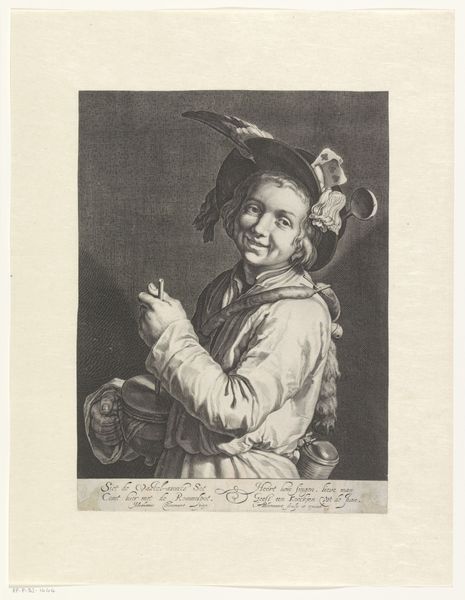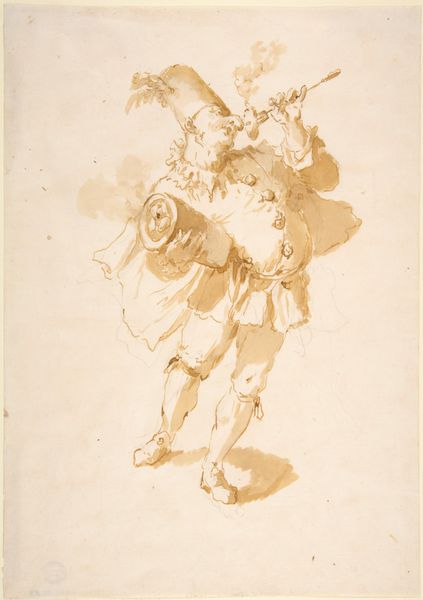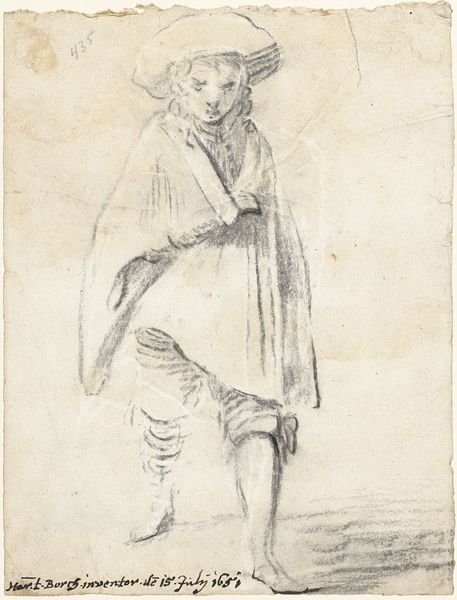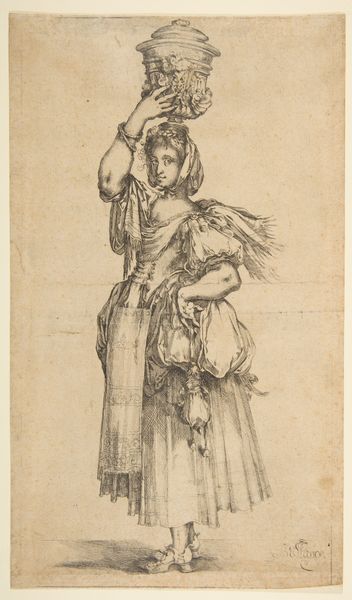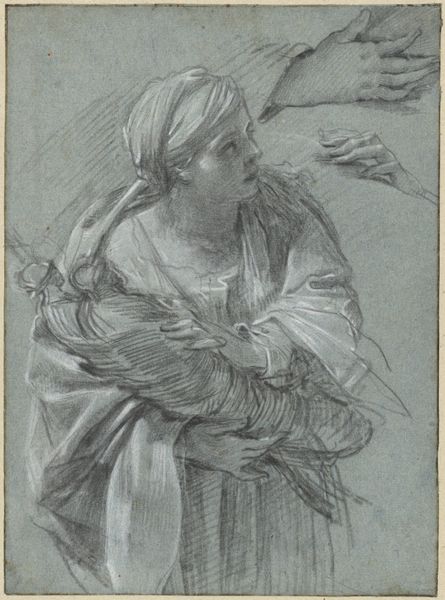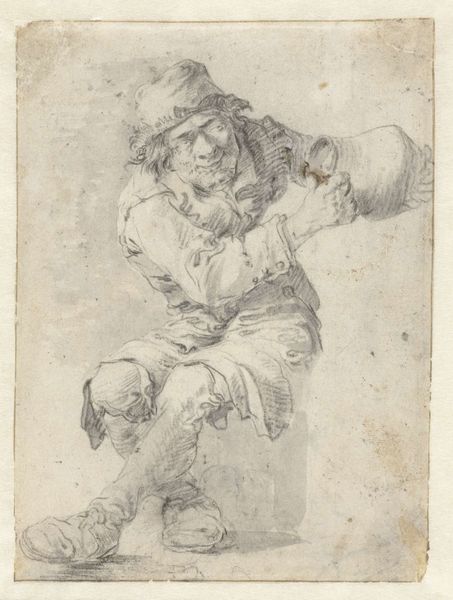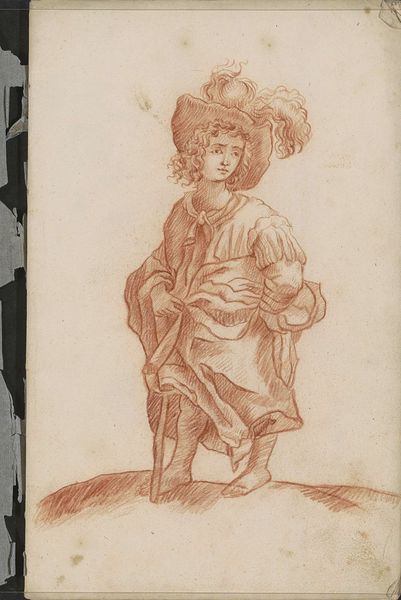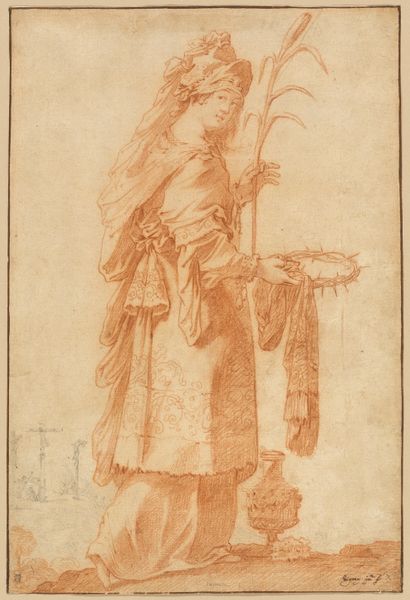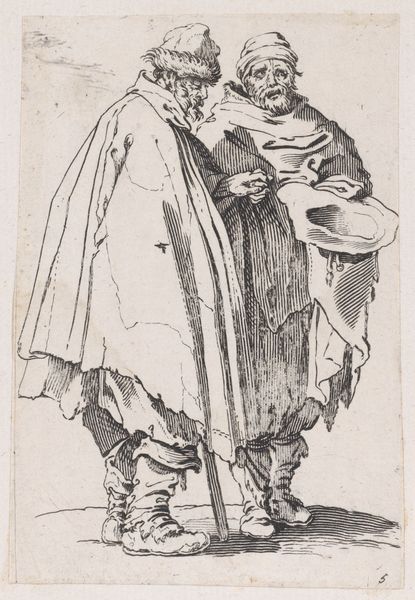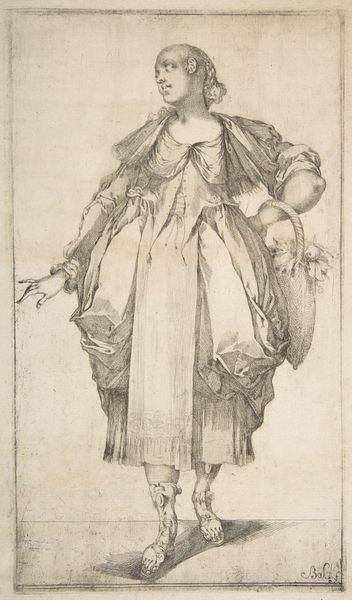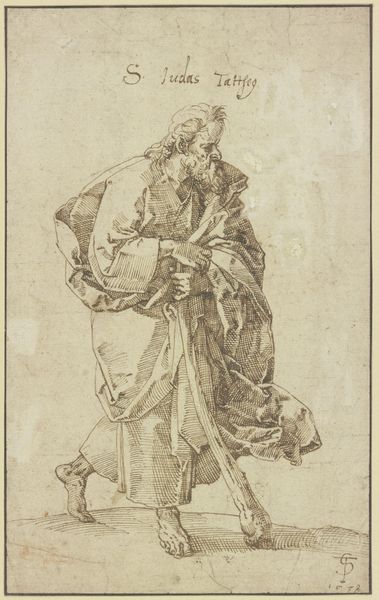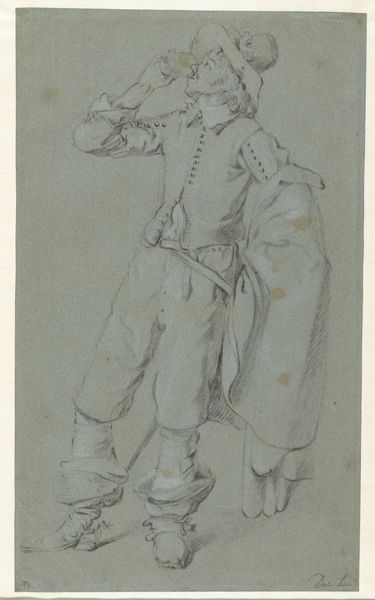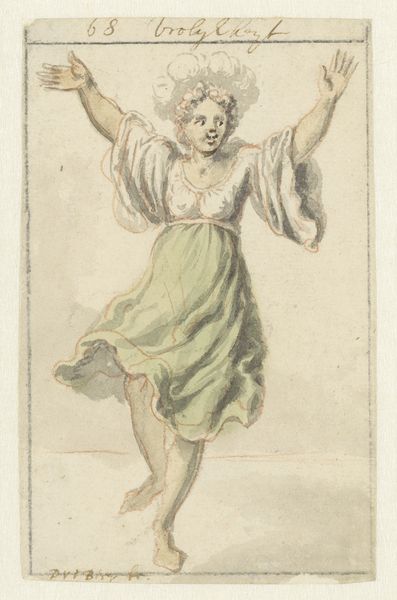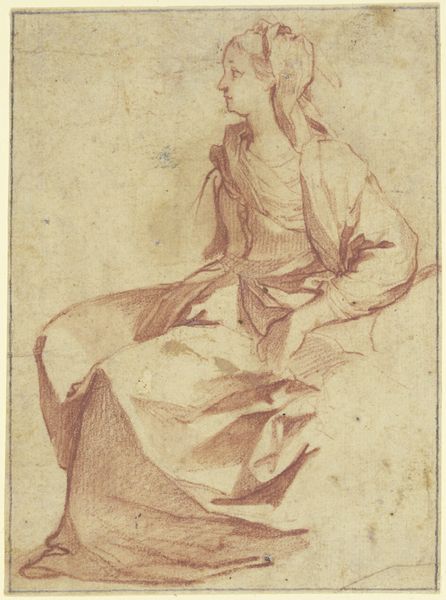
drawing, coloured-pencil, pencil
#
portrait
#
drawing
#
coloured-pencil
#
dutch-golden-age
#
charcoal drawing
#
figuration
#
coloured pencil
#
pencil
#
genre-painting
#
watercolor
#
realism
Dimensions: height 280 mm, width 225 mm
Copyright: Rijks Museum: Open Domain
Editor: This drawing, "Rommelpotspelende jongen" by Anna van N.H., made in 1637, uses colored pencil. The boy’s jaunty hat and smirk give him an air of mischievous confidence. How do you read the symbolism in this seemingly simple portrait? Curator: Well, it's more than just a simple portrait, isn't it? Consider the "rommelpot"—the instrument he's associated with. In the context of the Dutch Golden Age, where moralizing messages were often subtly woven into art, it points us to the complexities of class and representation. This boy, making music from what is essentially a noisemaker, represents perhaps the unruliness of the lower classes and challenges the conventional depiction of childhood innocence, wouldn't you agree? Editor: That's fascinating! I hadn't thought about the class implications of the instrument itself. I was focused on the performance aspect, seeing it more as a general symbol of youthful energy. Curator: And youthful energy it is! But, consider how that energy is framed. The rommelpot's noise disrupts the more refined musical culture. This artist may well be interrogating social hierarchies through this very playful image. What strikes you about how the artist uses colour? Editor: I see the red and gray as providing a striking contrast and bringing visual focus to the boy and his instrument. Curator: Indeed, and what does that highlight for you in terms of the themes present in the work? The intentional colour choices demand closer inspection. Perhaps the artist is trying to elevate the status, the perceived value of what is actually considered so lowly, literally illuminating the potential found within the marginalized. Editor: I hadn’t considered it that way! It makes me rethink the entire composition and what Van N.H. was trying to say. Curator: Exactly. It’s in these intersections—between material, representation, and historical context—that we find the power of art to challenge and redefine societal norms.
Comments
No comments
Be the first to comment and join the conversation on the ultimate creative platform.
